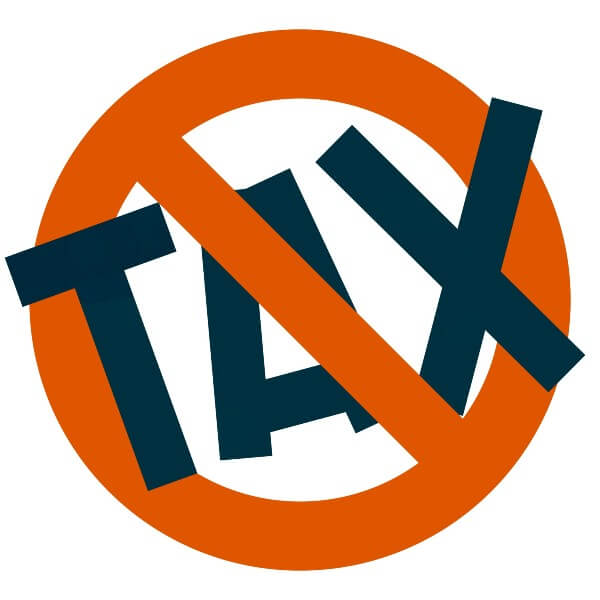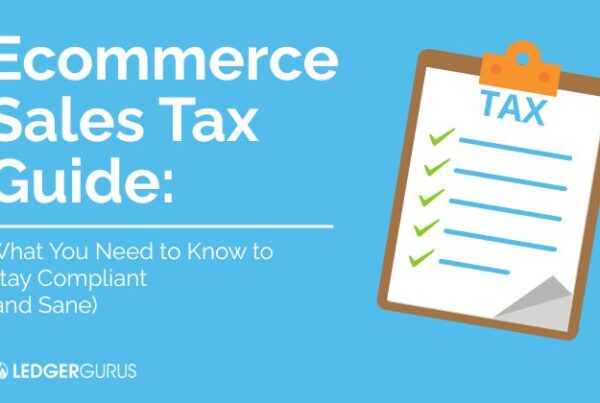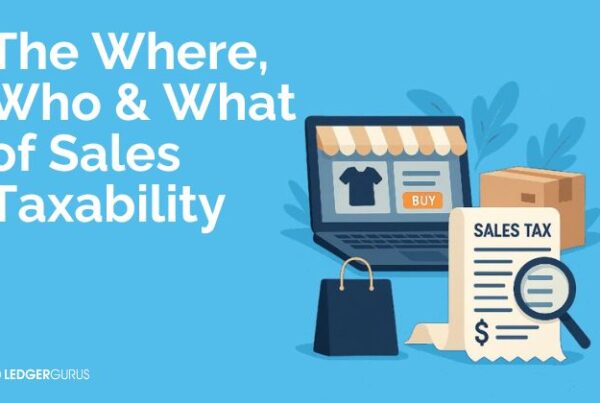
Navigating the world of sales tax is one of the top reasons our clients reach out to us for help. It’s not easy, and navigating solo is BRUTAL. There are so many factors at play which can completely change your sales tax liability as an online seller. Locations for doing business, types of products and services, types of customers, and timing for paying taxes are just a few. Even understanding if you qualify for sales tax exemptions is vital.
We liken the experience to the epic story of the Odyssey. Remember hearing that one in school? About the Greek hero Odysseus and his seemingly, non-stop troubles traveling at sea. At every turn of his journey, there was some monster to defeat, storm to grit through, enemy to outsmart. Dramatics aside, we know some days as a business owner you feel like poor Odysseus. Run through the ringer! And nowhere is this more true than dealing with sales taxes.
And that’s exactly why we do what we do. We want to give you the information and tools to navigate the complex and oftentimes confusing waters of business financials. Today, we’re going to hone in on a vital piece to managing sales taxes–your exemptions.
In full disclosure, it does take time and research to understand the full picture of your sales tax exemptions, as it’s different for every business. And while it’s not exactly a joyride to get all the paperwork in place, it’s totally worth the tax savings… So let’s dive in and see where you can save money on sales taxes! (Be sure to also check out our accompanying video: Do You Qualify For a Sales Tax Exemption?)
What are the types of sales tax exemptions?
First off, let’s get clear about the basics. Sales tax exemptions apply both on the selling side of business and the buying side. On the selling side, it means you do not have to charge sales taxes to your customers. On the buying side, it means you do not have to pay sales taxes for your business purchases.
For the selling side, there are three types of sales tax exemptions:
- Product exemption: This applies when a specific product (e.g., food, clothing, supplements) is not taxable. Product exemptions vary by state, and as an online seller, you do not have to maintain documentation where they apply because the exemption is already covered in legislation. (For online sellers using Shopify to handle your transactions, you can easily create a list, or collection, of these products and mark them with 0% tax to automatically address the sales tax exemption. For step-by-step instructions, check out our blog: Shopify Sales Tax Setup.)
- Customer exemption: This applies when the type of customer is exempt from paying sales taxes. Often, these are government entities, schools, or non-profits organizations. In this scenario, the customer has to provide a valid exemption certificate of their status, and you, as the seller, must maintain documentation on file.
- Transaction exemption: This applies if you are selling a product to a distributor who will then resell the product. In this scenario, the sales tax responsibility falls on the distributor and not on you, and to have tax exempt status, you will need to obtain a resale certificate from them.
For the buying side of a transaction, if you are purchasing inventory from a wholesaler or manufacturer directly and they are dropshipping the product to the customer, you shouldn’t be charged sales tax. This is because you will be collecting sales tax from your customers where you have nexus; thus, the relationship between you and the dropshipper should be tax-free. This is the scenario where YOU will need to provide an exemption certificate to your supplier.
Certificates for Sales Tax Exemptions
As an online seller, you are responsible for knowing your tax liability and making sure you maintain proper documentation for the sales tax exemptions listed in the scenarios above. In this, you have to make sure you have the right forms for the respective state. Make sure that they contain all necessary information, the tax ID numbers are valid, and signatures are in place.
Unfortunately, there is not a universal exemption certificate (form) for the entire U.S. If your supplier is located in your same state, you can download a resale certificate from your state’s website. If, however, your supplier is located in a different state, you will need to find out what documentation is required. For most states, they will accept either the Multi-State Committee (MST) Resale Certificate or the Streamlined Sales Tax Agreement (Certificate of Exemption) with your tax ID number.
If your supplier is located in a state that does not accept one of these two forms, you will need to obtain the state-specific form, and possibly even a separate tax ID number in that state. If this latter scenario applies to you, we encourage you to reach out to us for a consultation so we can pinpoint the specific documentation you need and make sure you are covered!
Getting on Track
Now that we’ve covered some of the basics, we hope you’ve got it on your radar to do a full review of your sales tax exemptions. If you haven’t already, get the necessary documentation in place to reduce your tax liability. We know this part isn’t fun. But we promise doing this legwork now will save you from blindly drifting into a tax storm later on.
To help jumpstart your management of sales taxes, including exemptions, we have created a 10-step guide that covers all of the big topics you need to plan for–determining sales tax nexus, collecting and recording sales tax, filing and paying sales tax, and keeping up with sales tax changes, to name a few. We know navigating the complex world of sales tax can be overwhelming and confusing. But we also know it’s crucial for online business survival. This complete guide will give you critical knowledge and tools to be tax compliant. And most importantly, it will ensure you, like our hero Odysseus, triumph over the many obstacles that could sink your business! For additional help on navigating your sales tax, reach out to us.
To learn more about sales tax for ecommerce businesses, click here for all our sales tax articles and here for our sales tax compliance YouTube playlist.



